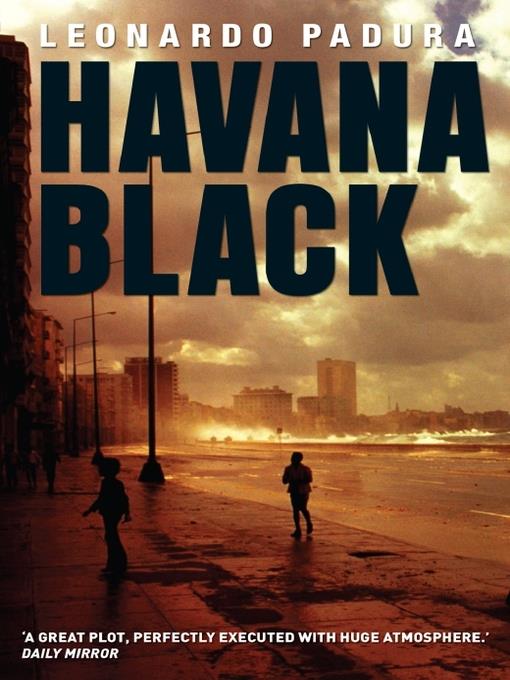
Havana Black
A Lieutenant Mario Conde Mystery
کتاب های مرتبط
- اطلاعات
- نقد و بررسی
- دیدگاه کاربران
نقد و بررسی

April 24, 2006
At the start of the well-plotted second volume of Padura's seething, steamy Havana Quartet (after 2005's Havana Red
), Cuban detective Mario Conde (aka "the Count") is approaching the end of his police career and his 36th birthday with drunken abandon while also anticipating, almost welcoming, the arrival of a devastating hurricane. Fed up with the latest departmental purges, which have claimed his boss and mentor, Major Rangel, Conde resigns from the department only to be offered a challenge and a bargain by Rangel's newly appointed replacement. If he can solve the brutal murder of a highly placed Cuban defector within three days, Conde's resignation will be accepted without prejudice. Padura grounds his tale against a backdrop of governmental corruption, the broken promises of the Cuban revolution and the difficult relations between those Cubans who fled the Castro regime and those who stayed. This densely packed mystery's unusual locale should attract readers outside the genre.

May 1, 2006
In the third Mario "the Count" Conde mystery to appear in English (after " Adios, Hemingway" and " Havana Red" , both 2005), Miguel Forcade is found washed ashore, having been dispatched with a baseball bat and emasculated with a dull kitchen knife. Coaxed from intended retirement to uncover what might have tempted the presumably corrupt diplomat and defector to return to his native Cuba, Inspector Conde finds no shortage of Maltese falcons hidden away amidst seedy squalor during the revolution. Padura's world is both as unknowable as lost love and as simple as a stray dog, and his prose is given to lush and loquacious ruminations rife with doom and duende somewhat reminiscent of Paco Ignacio Taibo's more contemplative side. While perhaps not as accessible as L. A. Garcia-Roza or Arnaldo Correa, this series is drenched with that beguiling otherness so appealing to the many fans of mysteries from other cultures, and may also please those who appreciate the sultry lyricism of James Lee Burke. For most libraries. (Reprinted with permission of Booklist, copyright 2006, American Library Association.)

























دیدگاه کاربران